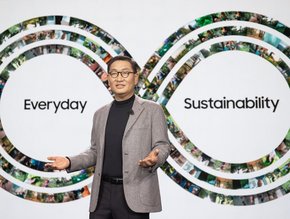Automation can make recruitment more human, report reveals

As the talent acquisition transformation accelerates demand for recruitment automation, with 55% of companies increasing investment in recruitment automation this year, concerns about automation removing the human element from the process remains rife.
But, according to new insight from Aptitude Research, the opposite ca n be true.
Recruitment automation accelerating
Much is being made of the ability of artificial intelligence (AI) to significantly transform Human Resources and in particular the recruitment process with the use of auto-screening or machine-learning software enabling firms to shortlist candidates, without reading CVs.
And while these companies recognise that the use of AI technology to automate the recruitment process can improve efficiency, lift administrative burden, reduce costs, and enable data-driven decisions, there are concerns that the technology could also remove the ‘human’ aspect of human resources.
The opposite can be true, however. That's according to research and a report from Aptitude Research, titled Recruitment Automation with Humanity, which focuses on recruitment automation through the lens of the candidate.
AI can improve human element of recruitment
The research, sponsored by Australian automation company PredictiveHive, reveals that when you shift the focus in automated Talent Acquisition from employer-driven to a candidate-first, it is possible to reduce bias in hiring and improve the overall human element of recruitment.
Humanistic automation can create personal connection at scale, and work to reduce bias, finds the research, something no other technology or even human-centred solution can deliver. This means that companies can communicate in a meaningful and inclusive way and build trust between candidates and employers.
“The misperception that candidates do not want automation and prefer to keep the current talent acquisition is one of the most significant misperceptions in talent acquisition,” states Aptitude's CEO, Madeline Laurano.
Laurano argues that what candidates want most is a fair recruitment process and consistency in communication and that automation can support all of these initiatives and “enhance the humanity of the experience”.
4 ways to humanise recruitment automation
There are four main ways that talent acquisition can be made more human with automation when the candidate is the focus, rather than simply moving candidates through the process:
- Automation can understand what candidates want: AI considers the unique expectations and experiences of candidates and adapts to them as it learns. Collecting feedback about the recruitment experience and continually improving the candidate journey can help candidates feel connected and heard.
- The correct data can interrupt bias early in the process: By creating a consistent and fair experience for candidates early in the process, and not relying on CV data as the determinate of job suitability, companies are more successful at reducing bias and increasing inclusivity.
- Trust can be built through transparent data: Both employers and candidates need to trust the data and methodologies for the technology that they are using, something that can be achieved through transparency. Companies looking at automation should consider providers that will partner with them and provide transparency.
- Provide feedback to every candidate: Though natural language processing every candidate receives personalised feedback and messaging. Leaving unsuccessful candidates feedback they can use for future job searches is empowering and a big leap from 'ghosting' or a standard rejection email.






